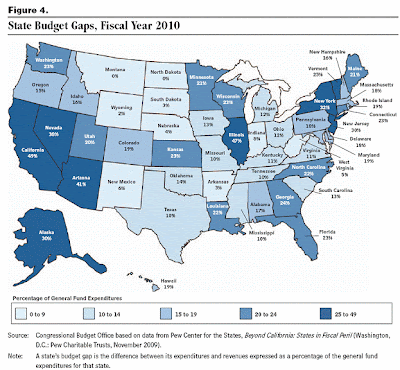Home » Uncategorized (Page 4)
Category Archives: Uncategorized
Stiglitz at Davos
Joseph Stiglitz comments on Obama’s economic policies at Davos, Switzerland.
State of the Union
Obama’s State of the Union Address Wednesday night:
Fed exposed
The risk faced by the Fed. Investment banks are being deleveraged; but the Fed got leveraged up:
The Federal Reserve's blowout 2009 profit is no reason to cheer. Rather, it is a reminder of the dangers inherent in the extraordinary policies the central bank has pursued during the credit crunch.
Last year, the Fed earned $52.1 billion, with most of that income coming from interest-payments on bonds that it bought during the year to shore up the economy and credit markets.
Anyone with access to printing presses could have racked up similar gains. But the Fed's purchases leave it exposed. Its assets are 43 times its capital, compared with 15 times at Goldman Sachs. As a result, its equity could be wiped out by just a 2.8% drop in the value of its Treasurys and securities issued by Fannie Mae and Freddie Mac. True, the Fed could hold on to those securities and ride out any losses, and retain earnings to boost capital, but what self-respecting central bank wants to risk a negative net worth?
Even the fact that the Fed is, as usual, paying most of its profit to the Treasury isn't good news. It means the Treasury is paying almost no interest on a large slug of debt purchased by the Fed. That can only chip away further at fiscal discipline.
What drives Euro?
Euro outlook from WSJ:
Be careful what you wish for. Six weeks ago, Jean-Claude Juncker, who chairs the group of euro-zone finance ministers known as the Eurogroup, complained that the euro was overvalued. Since then it has fallen 6.6% against the dollar. But Mr. Juncker can't be too happy. Persistent fears about Greece's fiscal situation have turned trade in the euro into a vote on the currency bloc's credibility.
The euro now trades just below $1.41, versus a peak on Nov. 25 last year of $1.51. Even that decline hasn't done much to erase the currency's strength, accumulated over much of the previous decade: in mid-December, at $1.45, the European Commission warned that the euro was overvalued on a real effective basis by 7% to 8%.
A range of factors are weighing on the euro. Some seem likely to be transitory: Fears about China's moves to rein in credit growth seem more aimed at trying to head off domestic inflation before it gets out of control, and thus should be good for global risk appetite in the long run. But others are more deeply entrenched. The European Central Bank has warned that the recovery in Europe will be gradual, and many expect the bank to increase rates later than the U.S. Federal Reserve or the Bank of England.
The key driver, however, has been the strains within the euro zone that Greece's struggle to rein in its public finances has brought into the spotlight. The euro's fall has come in lockstep with a rise in the cost of insuring Western European sovereign debt against default, as measured by the Markit iTraxx SovX index, which hit a record high of 0.84 percentage point points Wednesday, up from 0.57 at the start of December. Higher yields and a weaker currency might help to lure foreign buyers of bonds, something Greece is desperate to do. But higher yields are being interpreted as a sign of distress, rather than an opportunity. Hawkish ECB rhetoric warning that there will be no fudge on euro-zone rules to aid Greece are intensifying the pressure, even if his should be good for the euro's credibility in the longer term.
Further pressure seems likely as a result—at least in the short-term. Barclays technical analysts warn that a break below $1.4050 could lead to a dip as far as $1.3730; Citigroup said in January the euro could drop as far as $1.35. One worry now is contagion: If investors become concerned about other euro-zone countries such as Portugal, Spain or Ireland, more may decide to dump the single currency.
Budget gap by state
(click to enlarge; source: CBO)
No more proprietary trading?
The White House wants commercial banks that take deposits from customers to be barred from investing on behalf of the bank itself—what's known as proprietary trading—and said the administration will seek new limits on the size and concentration of financial institutions.
"You can choose to engage in proprietary trading, or you can own a bank, but you can't do both," the official said.


![[FEDHERD]](https://sg.wsj.net/public/resources/images/MI-BA800A_FEDHE_NS_20100112170742.gif)
![[EUROHEARD]](https://sg.wsj.net/public/resources/images/MI-BA955_EUROHE_NS_20100121211306.gif)



